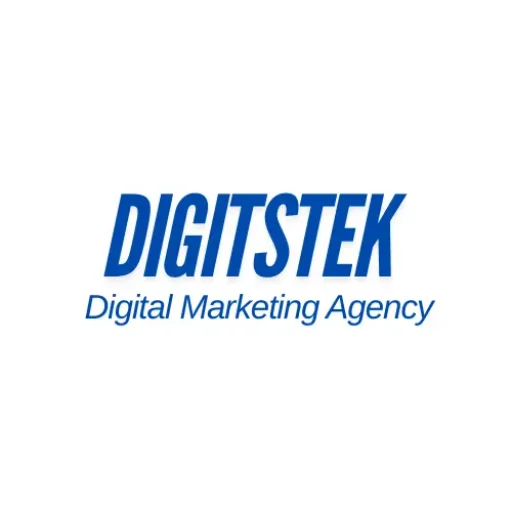
Introduction
Integrated marketing campaigns have become essential for modern businesses aiming to make an impact in an increasingly crowded and fragmented media environment. But what exactly do we mean by “integrated”? Simply put, an integrated marketing campaign involves creating a cohesive strategy that ties multiple marketing channels together, amplifying your message for greater reach and efficiency. This approach ensures that every touchpoint supports your brand’s message, no matter where, when, or how the customer encounters it.
For businesses, especially those located in thriving, competitive markets like Houston, integrated marketing is a game-changer. Houston’s unique combination of local entrepreneurship and global reach demands strategies that speak directly to a diverse audience while maintaining a unified voice. This type of approach can help brands stand out, build trust, and drive consistent results.
What is an Integrated Marketing Campaign?
Integrated marketing is all about using a coordinated approach across several platforms to deliver a seamless, impactful message. Instead of treating individual marketing efforts—like social media posts, email newsletters, or TV commercials—as isolated projects, integrated marketing joins them together into a comprehensive strategy.
Benefits of a Unified Marketing Approach
The strength of an integrated strategy lies in its ability to streamline efforts and reinforce messaging. When every channel works together, you get:
- Consistency Across Channels: Your audience hears the same clear, effective message whether they’re scrolling Instagram, reading emails, or attending an event.
- Stronger Brand Recognition: Repetition of consistent brand themes sticks in customers’ minds, making your business easier to remember.
- Cost Efficiency: Integrated campaigns often reduce wasted efforts by focusing only on channels that work together to maximize results.
- Broader Reach: A multichannel approach allows you to connect with diverse segments of your audience in the spaces they frequent most.
Key Components of Integrated Marketing Campaigns
An integrated marketing campaign is more than just a sum of its channels. To truly succeed, you need a strategic framework that connects all the moving parts. Here are four key components that form the backbone of any effective integrated marketing campaign:
Consistent Messaging
Consistency is the glue that holds an integrated campaign together. It ensures that your audience encounters the same core message, regardless of the platform. This means using a unified brand voice, tone, and visual identity across every channel. Whether it’s a social media caption, an email campaign, or a billboard, your messaging should feel cohesive. Customers appreciate familiarity—it builds trust and reinforces brand recognition.
Multi-Channel Approach
The power of integration lies in leveraging multiple channels to amplify your message. A successful campaign blends both traditional methods, like TV or print ads, with digital strategies, such as social media and email marketing. For example, a restaurant might combine local newspaper ads with Instagram Stories to target both older and younger audiences. The goal is to reach your audience wherever they are and seamlessly guide them through the customer journey.
Audience Segmentation
Not all audiences are alike, and that’s where segmentation comes in. By identifying specific groups within your target audience, you can craft tailored messages that resonate on a deeper level. For instance, a fashion brand might send personalized emails with promotions suited to a customer’s buying habits, while targeting a broader audience with paid social ads showcasing their latest collection. Identifying and speaking directly to different segments fosters relevance, which translates into better engagement and loyalty.
Data-Driven Strategies
Gone are the days of relying on guesswork. Campaigns now thrive on data and analytics. Every aspect, from refining audience targeting to optimizing budget allocation, stems from careful analysis of campaign performance. Using tools like Google Analytics or CRM systems, marketers can measure key performance indicators (KPIs) such as click-through rates, leads generated, or return on investment (ROI). These insights help fine-tune campaigns in real-time and ensure resources are being used effectively.
Popular Channels in Integrated Marketing
Once you’ve laid the foundation with the right strategies, it’s time to choose your channels. Here’s a closer look at some of the most popular platforms for integrated campaigns:
Email Marketing
Email remains one of the most effective ways to connect directly with your audience. Personalized emails, crafted using segmentation data, can drive engagement and boost conversions. For instance, a retailer might send birthday discounts tailored to individual customers. Automated sequences, like welcome or post-purchase emails, also keep communication consistent and timely. The key to success? Value-packed content combined with clickable calls-to-action (CTAs).
Social Media Marketing
Social media platforms like Facebook, Instagram, and Twitter are at the heart of modern marketing. These channels allow brands to engage both organically—through entertaining posts, updates, and conversations—and through paid ads targeting specific demographics. For example, Instagram is a great choice for stunning product visuals, while Facebook offers tools to nurture leads and build community. The real strength of social media is that it sparks dialogue, allowing brands to connect with their followers in a personal way.
Content Marketing
Content marketing focuses on creating and distributing valuable, relevant materials that attract and retain customers. Whether it’s blog posts, how-to videos, or shareable infographics, content is vital for brand awareness and audience engagement. For instance, a fitness brand might publish workout videos on YouTube while simultaneously posting health tips on their blog and Instagram. Thoughtful, high-quality content strengthens relationships, encourages sharing, and helps move prospects along the buyer’s journey.
Search Engine Optimization (SEO)
A strong online presence starts with visibility, making SEO a must for any campaign. By optimizing website content to rank higher in search engine results, you can increase organic traffic from people actively seeking your products or services. Techniques like keyword research, internal linking, and mobile responsiveness all play important roles in boosting your rankings. For example, a local Houston bakery might optimize their website with keywords like “best cakes in Houston” to attract nearby customers searching online.
Pay-Per-Click (PPC) Advertising
For faster results, many businesses turn to PPC advertising. Platforms like Google Ads allow brands to bid on specific keywords so their ads appear at the top of search results. One advantage of PPC is its precise targeting capabilities—you can narrow your audience by location, interests, or even browsing habits. A software company, for example, might run PPC campaigns targeting businesses searching for “best project management tools.” With clear goals and compelling copy, PPC ensures your message reaches high-intent consumers efficiently.
The Role of a Digital Marketing Agency in Houston
Integrated marketing campaigns can be complex, especially in a bustling, diverse market like Houston. This is where a digital marketing agency in Houston can step in to simplify the process and deliver impactful results. These agencies have a deep understanding of the local market and can tailor strategies that resonate with Houston’s unique audience mix.
How Local Agencies Tailor Strategies for Houston Businesses
A Houston-based agency knows the city’s business landscape, cultural nuances, and competitive dynamics. For instance, they understand how to connect with Houston’s multilingual communities or cater to the city’s thriving entrepreneurial spirit. By leveraging local insights, they craft campaigns that align with the preferences and behaviors of your target audience, whether you’re a B2B tech startup or a popular dining hotspot.
Benefits of Partnering with a Digital Marketing Agency in Houston
Working with a local team offers several advantages, including hands-on support and an intimate understanding of Houston’s diverse demographics. A digital marketing agency in Houston can provide end-to-end services, from strategy development to execution, all while ensuring your brand’s message remains cohesive. Additionally, local agencies often have established relationships with regional media outlets and influencers, which can amplify your campaign’s reach.
Case Studies of Successful Campaigns
Houston businesses that have embraced integrated marketing often see impressive results. For example, a healthcare organization partnered with a Houston agency to launch a campaign blending SEO, PPC ads, and social media outreach to boost patient appointments. By targeting local search terms and utilizing relatable messaging, the campaign increased engagement by 40%. Such examples highlight how local expertise can be a game-changer for businesses.
Challenges in Implementing Integrated Marketing Campaigns
Even the best marketing strategies come with challenges. Integrated campaigns require careful coordination and constant oversight to produce measurable results. Here are a few common hurdles businesses face:
Maintaining Consistency Across Channels
With so many platforms at play, it’s easy for messaging to become inconsistent. Each channel has its quirks, but ensuring your brand feels uniform—whether it’s through design, tone, or values—can prevent customer confusion and enhance trust.
Allocating Resources Effectively
Integrated campaigns can be resource-heavy. Without careful budget planning and task prioritization, you may find yourself stretched thin. It’s important to balance efforts across channels and invest in those that align best with your goals and audience.
Measuring Success
Tracking results across various channels isn’t straightforward. While tools like Google Analytics or social media insights help, compiling data into actionable reports takes time and skill. Defining key performance indicators (KPIs) before launching your campaign is crucial to measure success effectively.
Best Practices for Successful Integrated Marketing
To overcome these challenges and achieve your goals, follow these tried-and-tested practices:
Developing a Clear and Cohesive Strategy
A strong strategy is the backbone of any integrated campaign. Start with well-defined objectives—whether that’s boosting brand awareness or generating leads—and outline how each channel will contribute to achieving them. This ensures all moving parts align from the start.
Ensuring Team Alignment
Your marketing and creative teams need to be on the same page to maintain cohesion. Collaborative tools such as project management software or regular briefings can keep everyone updated on goals, timelines, and deliverables.
Regularly Reviewing and Adjusting Based on Performance
Integrated marketing is not a one-and-done effort. Monitor your campaign’s progress and don’t hesitate to make adjustments. For example, if email campaigns are seeing higher conversions than social ads, shifting resources to scale that channel could improve overall outcomes.
Conclusion
Integrated marketing campaigns are essential for modern businesses aiming to cut through the noise and establish meaningful connections with their audiences. By bringing together various channels under a unified strategy, companies can create a powerful presence that drives results and builds lasting customer loyalty.
For businesses in Houston, the stakes are even higher. The city’s competitive environment and diverse audience base call for a personalized, focused approach. Partnering with a digital marketing agency in Houston can help you create campaigns that stand out, resonate with your target market, and deliver a strong return on investment.
Don’t wait to elevate your marketing efforts. Contact a reputable digital marketing agency in Houston-Digitstek today and discover how integrated marketing can drive your success.




